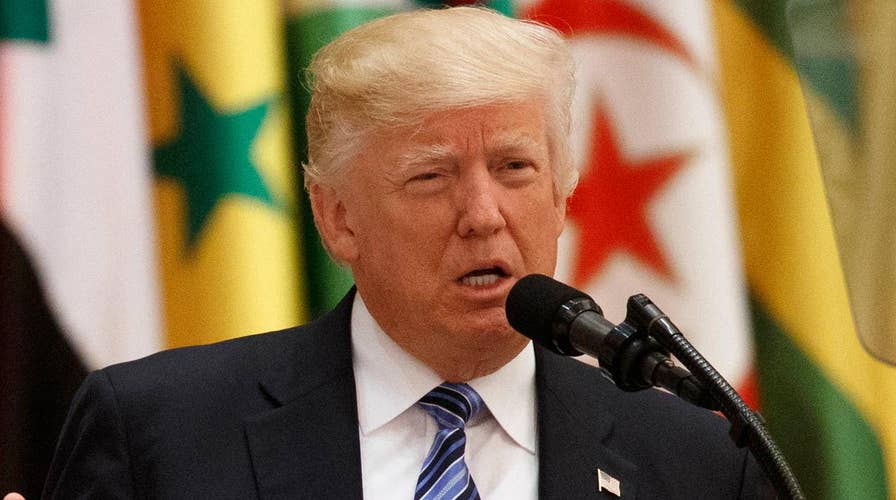From Manchester to Kabul, over the last two weeks there has been a sharp rise in the number of high-profile terror attacks that have left more than 300 hundred dead and put the world on edge.
Manchester, United Kingdom: May 23
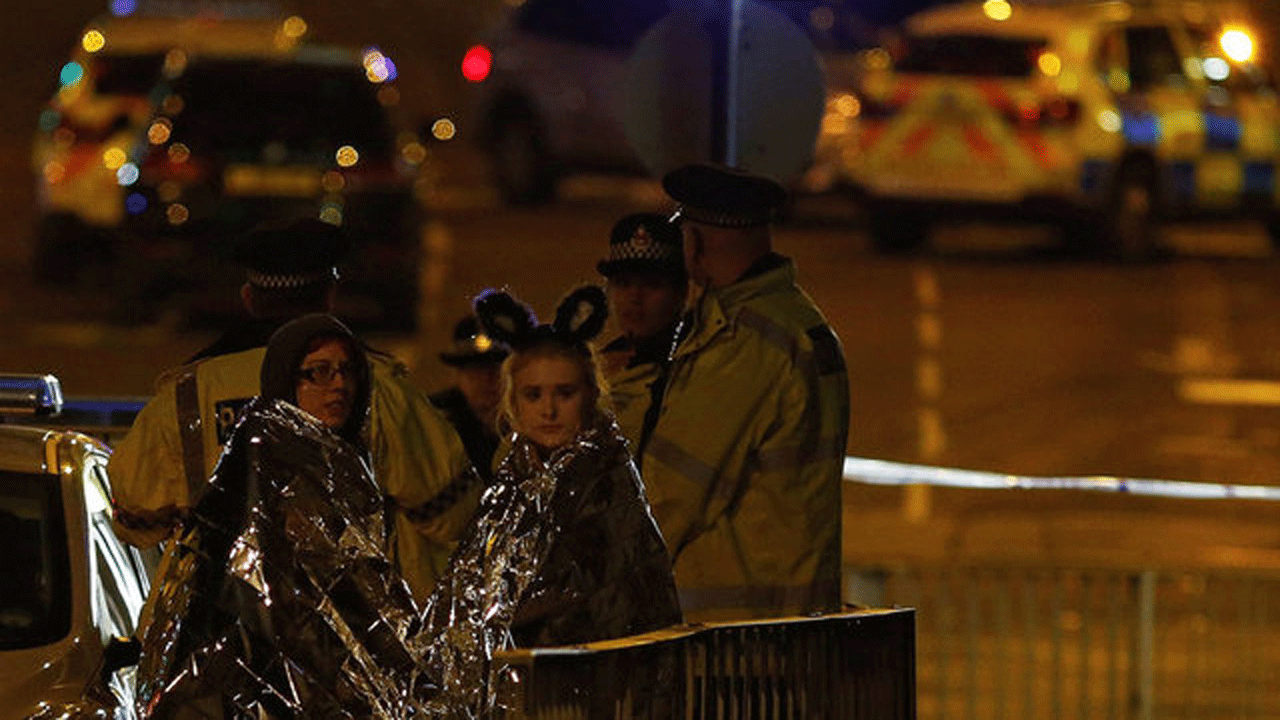
(Reuters)
The recent surge in global terror attacks began on May 23 when 22-year-old, English-born suicide bomber Salman Abedi detonated a backpack bomb during a concert by pop singer Ariana Grande at the Manchester Arena. The bomb killed 22 people – mostly women and young girls -- and left more than 100 wounded in one of the worst terror attacks in the history of the United Kingdom.
Following the bombing, the Islamic State claimed responsibility for the attack and called Abedi "a soldier of the caliphate” who “planted bombs in the middle of Crusaders gatherings."
Minya, Egypt: May 26
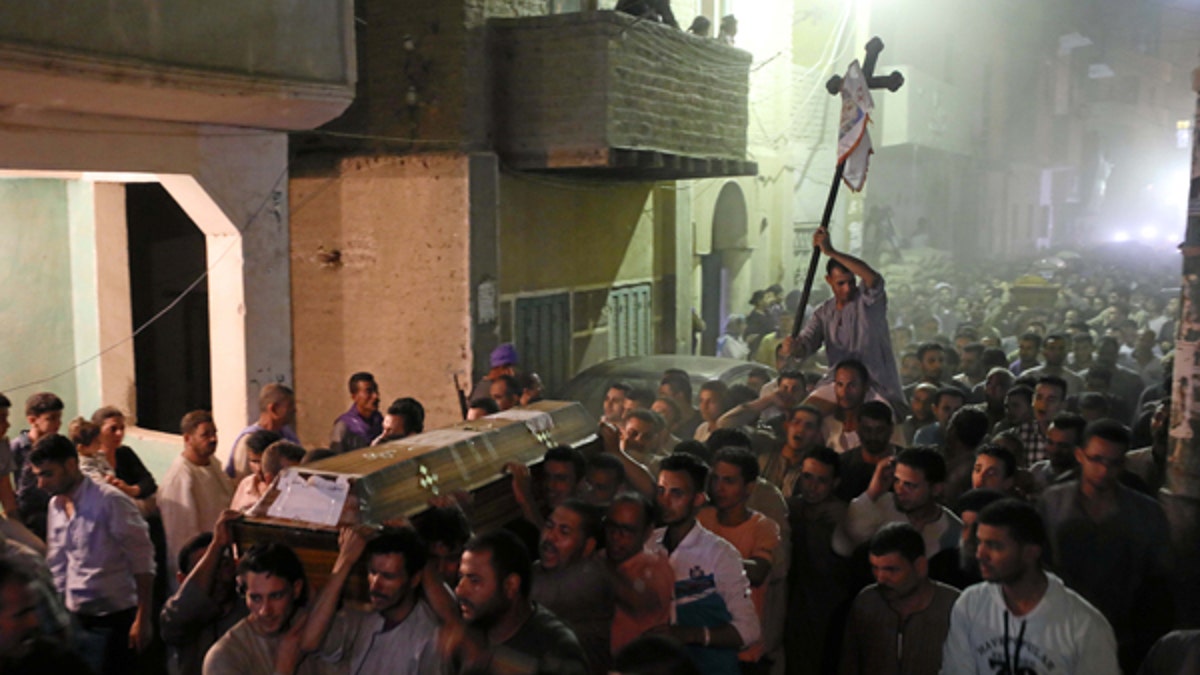
Mourners carry crosses and march at the funeral of Coptic Christians who were killed on Friday in Minya, Egypt, May 26, 2017. (REUTERS/Mohamed Abd El Ghany)
Three days after the Manchester attack, ISIS gunmen ambushed a bus carrying Egyptian Coptic Christians to St. Samuel the Confessor monastery, about 140 miles south of Cairo, and killed 29 people.
The attack on Coptic Christians last Friday, on the eve of the start of the Muslim holy month of Ramadan, has shocked many in Egypt. It was the fourth assault targeting Christians since December-- attacks that have been claimed by the Islamic State group and that have killed more than 100 people in all.
In April, the Islamic State group bombed two churches in the northern cities of Tanta and Alexandria as Coptic Christians were celebrating Palm Sunday. President Abdel Fattah el-Sissi declared a three-month state of emergency afterward.
ISIS has vowed to step up attacks on Coptic Christians, who account for about 10 percent of Egypt's 93 million people.
Baghdad, Iraq: May 30
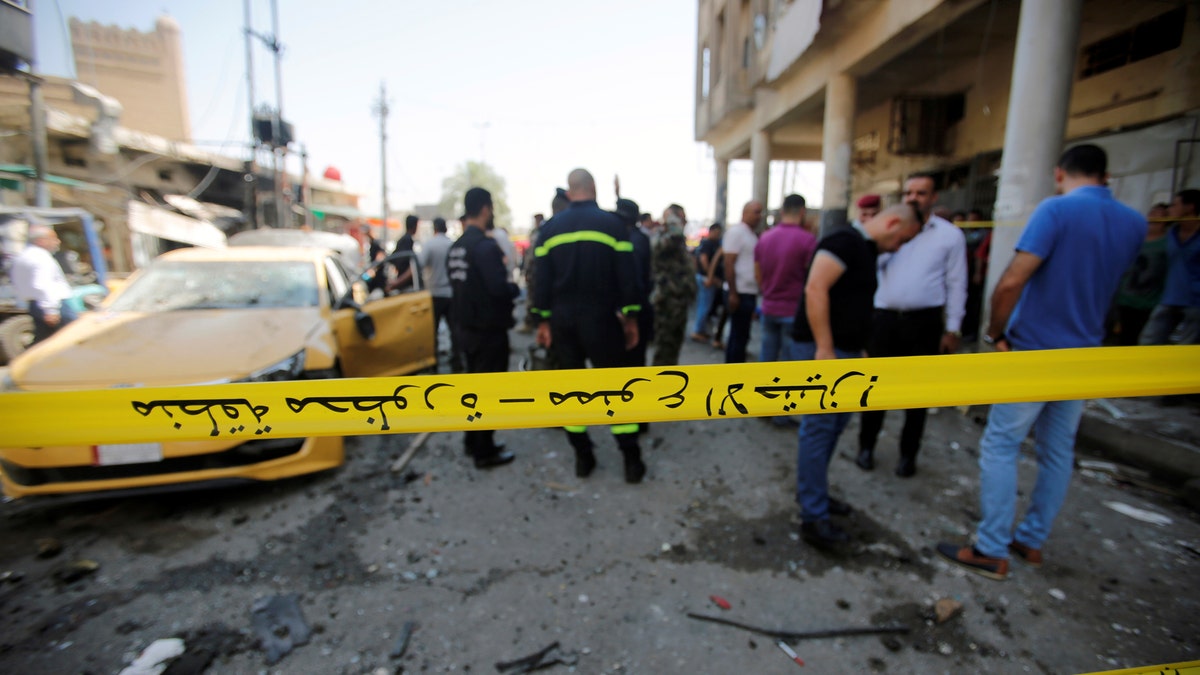
Police tape cordon is seen at the site of a car bomb attack near a government office in Karkh district in Baghdad, Iraq May 30, 2017. (REUTERS/Khalid al-Mousily)
The Iraqi capital was rocked by a series of bombings on Tuesday that left 38 people dead and over 60 wounded.
A nighttime attack outside an ice cream parlor in the bustling Baghdad neighborhood of Karrada killed 17 people and wounded 32, police and health officials said.
A closed-circuit camera captured the moment of the explosion, the video showing a busy downtown avenue with cars driving down the street when the blast strikes. A huge fireball engulfs a building, causing cars to scramble to get away. Other videos of the attack posted on social media show wounded and bloodied people crying for help on the sidewalk outside the ice cream parlor.
In the second attack, an explosives-laden car went off during rush hour near the state-run Public Pension Office in Baghdad's busy Shawaka area, killing 14, a police officer said. At least 37 people were wounded in that attack, he added.
In separate online statements, ISIS claimed responsibility for the two attacks, saying its suicide bombers targeted gatherings of Shiites.
Later in the day, bombings in and around the Iraqi capital killed seven more people.
Also on Tuesday, a suicide bomber attacked a military patrol in the town of Hit in Iraq's western Anbar province, killing at least eight people and wounding 10, including security force members
A week earlier, seven people died and 19 were wounded in four separate bombings in and around Baghdad, officials said. The attacks targeted commercial areas and a patrol of Sunni anti-ISIS tribal fighters.
Kabul, Afghanistan: May 31
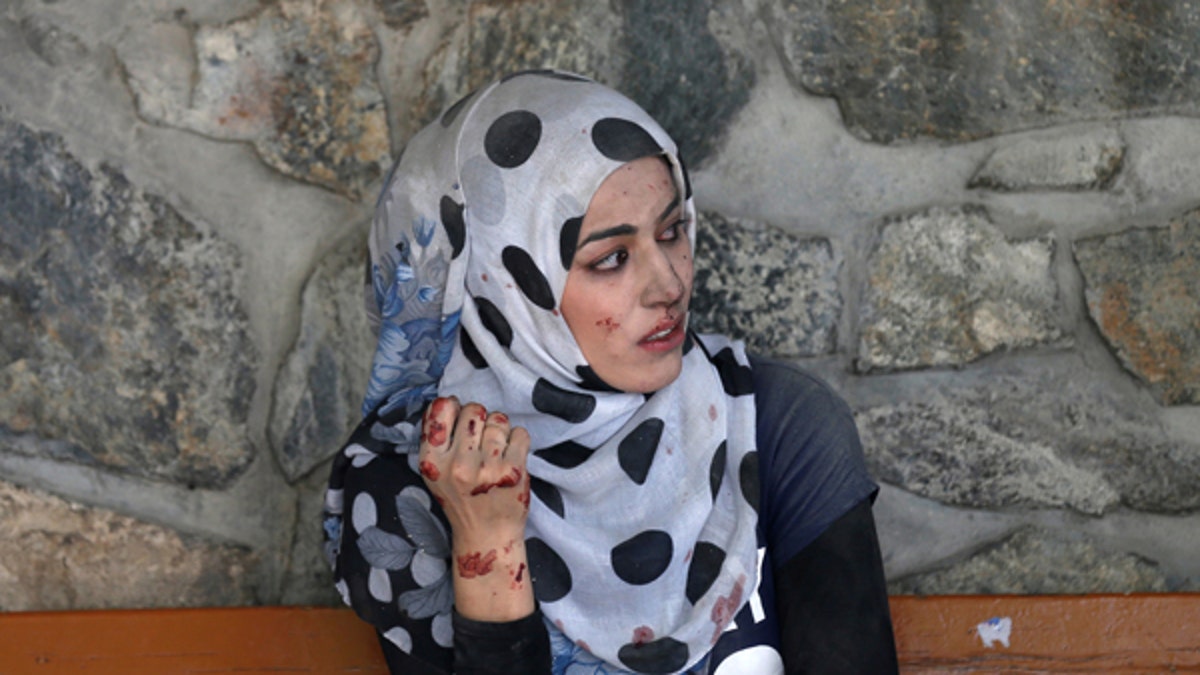
A woman sits outside a hospital after a blast in Kabul, Afghanistan May 31, 2017. (REUTERS/Mohammad Ismail)
A suicide attacker on Wednesday struck the fortified heart of the Afghan capital of Kabul with a massive truck bomb that killed 90 people, wounded some 400 and raised fears about the government's ability to protect its citizens nearly 16 years into a war with insurgents.
The bomber drove into Kabul's heavily guarded diplomatic quarter during the morning rush hour, leaving behind a bloody scene of chaos and destruction in one of the worst attacks since the drawdown of foreign forces from Afghanistan in 2014.
Most of the casualties were civilians, including women and children, but the dead also included Afghan security guards at the facilities, including the U.S. Embassy. Eleven American contractors were also wounded -- none with life-threatening injuries, a U.S. State Department official said.
There was no claim of responsibility for the attack, which came in the first week of Ramadan. The Taliban flatly denied any involvement in an email to news outlets and condemned all attacks against civilians.
The Associated Press contributed to this report.
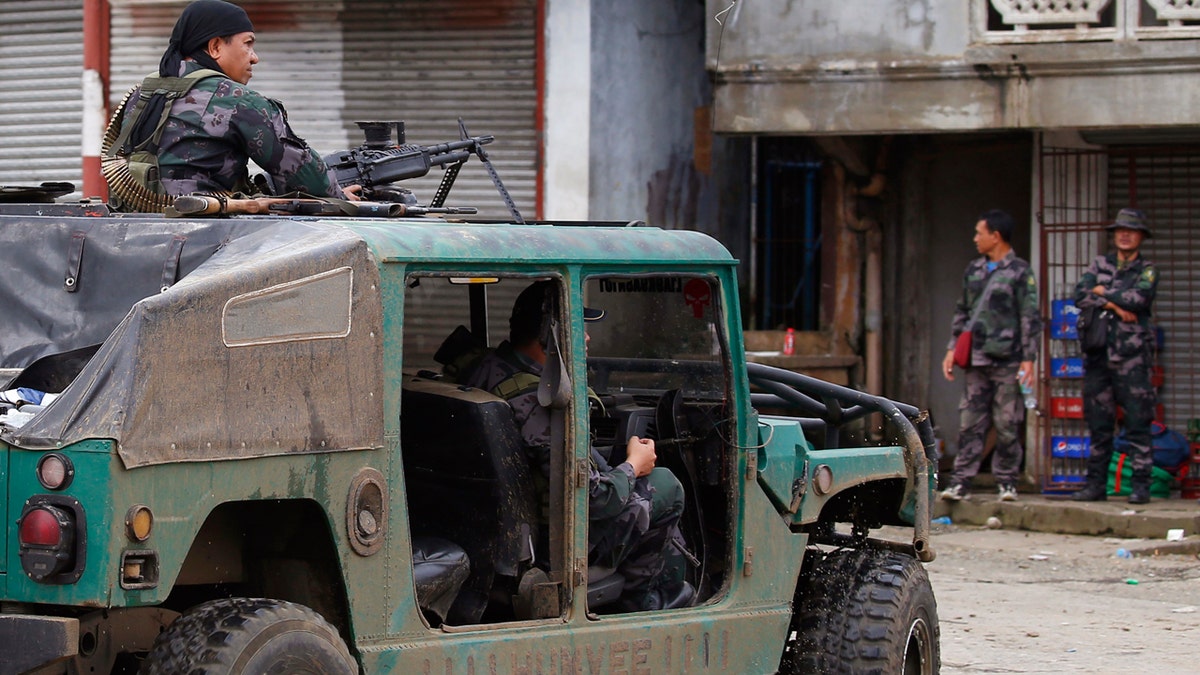
Police patrol the streets of Marawi city as government troops battle with Muslim militants who continue to hold their ground in some areas of the city for almost a week Monday, May 29, 2017 in southern Philippines. (AP Photo/Bullit Marquez)
